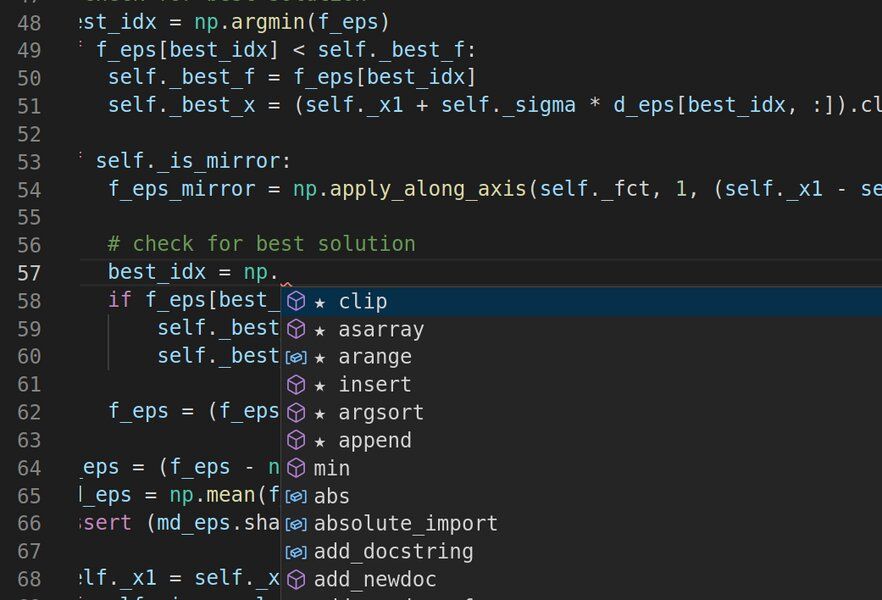The speed at which new autonomous weapons are being created and improved is impressive but also staggering.
By Kris Osborn
Drone fleets, robotic vehicles, and multi-domain manned-unmanned connectivity are changing the future of warfare.

The speed at which new autonomous weapons are being created and improved is impressive but also staggering.
By Kris Osborn
Drone fleets, robotic vehicles, and multi-domain manned-unmanned connectivity are changing the future of warfare.
Around a century ago when film stocks and photographs were first coming to light, they faced a number of challenges in capturing the essence of an image. In addition to the black and white limitation, photography and film methods also struggled to capture other various elements of the color spectrum, rendering many images of famous figures appearing differently than they may have actually looked.
Now, a new AI imaging technique uses color to restyle old photographs in a way that could almost pass for modern day photographs. This colorization method mitigates the main obstacles of cameras and lenses from the olden days—namely, the orthochromatic nature of those tools, meaning that the photo capture device in question incorporated all detected light into the image without discrimination. The inclusion of all of this light resulted in photos that appeared grainy and noisy, leading to renowned figures such as U.S. president Abraham Lincoln looking far older and wrinklier than he actually was.
These days, especially with the aid of computer graphics, more advanced photographic techniques have taken advantage of the fact that light tends to penetrate the surface of human skin and illuminate the flesh from underneath. This illumination helps to eliminate extra noise and wrinkle marks that marred many images from the early 1900s.

Whatever business a company may be in, software plays an increasingly vital role, from managing inventory to interfacing with customers. Software developers, as a result, are in greater demand than ever, and that’s driving the push to automate some of the easier tasks that take up their time.
Productivity tools like Eclipse and Visual Studio suggest snippets of code that developers can easily drop into their work as they write. These automated features are powered by sophisticated language models that have learned to read and write computer code after absorbing thousands of examples. But like other deep learning models trained on big datasets without explicit instructions, language models designed for code-processing have baked-in vulnerabilities.
“Unless you’re really careful, a hacker can subtly manipulate inputs to these models to make them predict anything,” says Shashank Srikant, a graduate student in MIT’s Department of Electrical Engineering and Computer Science. “We’re trying to study and prevent that.”

There is no cheaper way to generate electricity today than with the sun. Power plants are currently under construction in sunny locations that will supply solar electricity for less than 2 cents per kilowatt hour. Solar cells available on the market based on crystalline silicon make this possible with efficiencies of up to 23 percent. Therefore they hold a global market share of around 95 percent. With even higher efficiencies of more than 26 percent, costs could fall further. An international working group led by photovoltaics researchers from Forschungszentrum Jülich now plan to reach this goal with a nanostructured, transparent material for the front of solar cells and a sophisticated design. The scientists report on their success of many years of research in the renowned scientific journal Nature Energy.
Silicon solar cells have been steadily improved over the past decades and have already reached a very high level of development. However, the disturbing effect of recombination still occurs after the absorption of sunlight and the photovoltaic generation of electrical charge carriers. In this process, negative and positive charge carriers that have already been generated combine and cancel each other out before they could be used for the flow of solar electricity. This effect can be countered by special materials that have a special property—passivation.
“Our nanostructured layers offer precisely this desired passivation,” says Malte Köhler, former Ph.D. student and first author from the Jülich Institute for Energy and Climate Research (IEK-5), who has since received his doctorate. In addition, the ultra-thin layers are transparent—so the incidence of light is hardly reduced—and exhibit high electrical conductivity.

NASA officially announced that it’s going to announce who it will choose to build a rocket capable of bringing the first astronauts to the Moon’s surface since the Apollo missions.
But news of the decision may have just leaked to The Washington Post a little early.
According to documents obtained by the newspaper, NASA has officially chosen Elon Musk’s SpaceX to to build a lunar lander variant of its Starship spacecraft as part of the agency’s Artemis program — an extraordinary coup for the spacetech startup.
Four veteran astronauts will launch to the International Space Station on Thursday (April 22) for SpaceX’s Crew-2 mission, the second operational commercial crew flight of SpaceX’s Crew Dragon spacecraft.
The mission is set to blast off on April 22 from Pad 39A at NASA’s Kennedy Space Center in Florida at 6:11 a.m. EDT (1011 GMT). And, if all goes as planned, Crew Dragon will dock with the orbital outpost less than 24 hours later.


The Syntellect Emergence seems to be a cosmic necessity, and in the long run, any voices calling to resist the cybernetic fusion of the mind will be no more influential than the voices calling, right now, to eradicate civilization and return to the jungle. Nature’s tendency to build up hierarchies of emergent patterns, the heuristic law of evolution, supersedes the human race itself. We see it time and again, Nature is constantly trying to combine seemingly opposing forces, to assemble existing parts into the new wholes through the universal process of radical emergence. We are bound to transcend our biology, our human condition, our limited dimensionality, we are bound to transcend ourselves.
#TranscendentalCybernetics #CyberneticSingularity #SyntellectEmergence
Syntellect Emergence is hypothesized to be the next meta-system transition, becoming one Global Mind — that constitutes the Cybernetic Singularity.


Opportunity to Publish AI Related Papers in a Peer-Reviewed Journal w/o cost. One in the BICA*AI 2021 Conference and the Philosophy and Computing Conference at IS4SI Summit in September.
One of the bigger problems I have run into in doing research out of a small lab is the cost of publishing papers and get them peer-reviewed. Many of the most specialized scientific conferences like BICA Society (Biologically Inspired Cognitive Architectures for AI) can not afford to subsidize costs. This means limits on how many papers can be released and spreading papers over many years sometimes. Recently I got invited to produce and help produce two scientific conferences at the IS4IS summit in September, and the best part is that IS4SI has gotten a grant to cover publishing costs. This means everyone for both conferences is able to publish (assuming your paper meets standards) and attend for free.
If for some reason, your paper does not meet the quality or topic bar’s, we can help you. So the two VIRTUAL conferences are:
BICA*AI 2021 – Biologically Inspired Cognitive Architectures for AI (I’m the chair on this one) This conference contributing to the 2021 Summit of the International Society for the Study of Information (IS4SI), is about how data and data architecture is used and implemented in theory and practice in agent-based systems using cognitive architectures that are inspired in large part by the human and animal mind. All aspects of information theory and information architecture in a Biologically Inspired Cognitive Architectures (BICA) based system may be covered. This conference is about information theory from the BICA perspective.